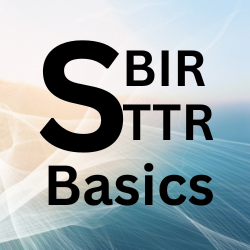Stay Compliant, Stay Protected
Congratulations on landing an SBIR or STTR grant! These programs fund your R&D and help push your ideas toward the market. But be careful. Breaking program rules or other laws can lead to personal liability. That means your own money and future could be at risk. Let’s walk you through the key risks in SBIR/STTR and show where non-compliance can hit your wallet. Let’s dive in and protect both your business and personal assets.
Personal Liability in SBIR/STTR Programs: Don’t Trip Over These Traps
SBIR and STTR programs offer incredible opportunities, but they come with strict rules. Mess up, and you could face personal liability. Here’s what you need to watch out for:
Don’t Lie in Your Proposals
You may think embellishing your company’s qualifications and accomplishments is okay. However, lying in your SBIR/STTR proposal is a quick path to serious trouble. Say your company has under 500 employees, when it doesn’t? Claim U.S. ownership when it’s not? Apply as a nonprofit? Claim you have manufacturing up and running when you don’t? Inflate your budget or fake technical data? These are all False Claims Act violations. You could face fines, repay the grant, or owe money yourself if your business can’t. The government will find out, and you’ll pay. Be honest, always.
Use Funds Wisely
SBIR/STTR dollars are for approved R&D activities, not personal vacations, unrelated business ventures, a company car, or other government or commercial projects. Misuse funds, and you will face audits, penalties, and, possibly, criminal indictment. Federal agencies like the SBA or the Department of Justice will demand repayment if intentional misuse occurs. If your business lacks the cash, you’re personally on the hook. Also, deliberate misuse of funds can result in criminal and civil charges. Keep meticulous records and stick to the grant’s purpose to avoid this trap.
Follow Program Rules
SBIR and STTR have precise requirements. For STTR, you must collaborate with a research institution (FFRDC, nonprofit university, or research organization), meeting minimum research percentages (40% by your business, 30% by the institution). Miss milestones, skip reports, or fail to execute the research plan? You risk award termination and repayment demands. Agencies could target your personal assets if your business can’t pay, especially when negligence or misconduct occurs. Learn the rules and follow them precisely.
Honor Contracts and Grants
SBIR/STTR awards are grants or contracts with binding terms. Failure to deliver reports, meet deadlines, or protect intellectual property breaches the agreement. Sole proprietors and partners have their personal assets at risk by default. Even in corporations or LLCs, you could face liability if you personally guarantee contracts or if courts find fraud. Remember, ignorance isn’t a defense. Read the fine print and deliver on promises.
Protect Data and IP
SBIR/STTR programs give the government limited rights to your data while you retain commercialization rights. Mishandle intellectual property, like violating data rights or failing to disclose prior IP, and you’re in hot water. Infringe on third-party IP or misrepresent your technology? You could face lawsuits and personal liability, especially if you acted knowingly. Safeguard your IP and respect the rules to stay clear of trouble.
Ace Your Audits
Federal agencies audit SBIR/STTR recipients to ensure compliance. Sloppy record-keeping or missing financial and technical records can trigger penalties. If auditors spot intentional misconduct, you could owe fines or repay funds personally. You must have solid records. Invest in systems to track every dollar and deliverable.
Principal Investigator Liability
You don’t need to own a business to face personal liability as a Principal Investigator (PI) in SBIR or STTR programs. The PI leads the technical work and ensures program rules and contract compliance. Typically, you’re not personally liable for company mistakes. Still, trouble comes if you mess up big, like lying on certifications, misusing funds, ignoring program rules, or violating award terms and conditions. Major violations or a pattern of deliberate non-compliance can lead to criminal or civil penalties, especially if you’re calling the shots or signing off on things. So, know your duties, keep clear records, and always play it straight. Accountability isn’t just a word. It’s on you.
Beyond SBIR/STTR: Other Business Areas Where Non-Compliance Bites
Non-compliance doesn’t just haunt SBIR/STTR programs. It hides in every part of your business. Any issue below can hurt your SBIR/STTR eligibility. You must follow all federal, state, and local laws to stay eligible. So, here are key areas where mistakes can expose your personal assets and risk your program eligibility:
Taxes: Pay What You Owe
Skimp on payroll taxes, sales taxes, or accurate tax filings, and the IRS will come for you. Owners are personally liable for things like employee withholdings, even in corporations or LLCs. Expect fines, interest, and asset seizures if you don’t comply. File on time, pay up, and keep your personal finances safe.
Employment Laws: Treat Workers Right
Ignore minimum wage, overtime, or workplace safety laws, and you risk personal liability. The Fair Labor Standards Act (FLSA) and OSHA can hold you accountable, especially if you oversee operations or act in bad faith. Was a worker injured due to your negligence? You could face fines or lawsuits. Prioritize compliance with labor laws to protect your wallet.
Environmental Rules: Don’t Pollute
Improper waste disposal or missing environmental permits can land you in deep trouble. Under laws like CERCLA, you’re personally liable for cleanup costs if your business harms the environment, especially if you’re directly involved. Illegal dumping? Expect personal fines and restoration bills. Get the proper permits and follow environmental regulations.
Contracts and Guarantees: Keep Your Word
Personally guarantee a loan, lease, or supplier contract? Default and your assets are on the line. Breach of customer or other agreements and lawsuits could follow. If your business goes bankrupt or commits fraud, creditors can go after your assets. Read every contract closely. Avoid personal guarantees whenever you can.
Consumer Protection: Deliver Safe Products
False advertising or defective products can spark consumer lawsuits. If your product injures someone due to negligence or willful disregard, you could face personal liability, especially in sole proprietorships or undercapitalized businesses. Ensure your products meet safety standards and your marketing is truthful.
Corporate Governance: Act Responsibly
As an owner or officer, you must act in your company’s best interest. Mismanage funds, engage in self-dealing, or skip corporate formalities, and you risk personal liability. Courts can pierce the corporate veil, exposing your assets to creditors or shareholders. Maintain clear boundaries between personal and business finances.
Licensing and Permits: Stay Legal
Operating without required licenses or permits, such as professional certifications or health permits, can lead to fines and lawsuits. Knowingly run an unlicensed business? Regulators and affected parties can target your personal assets. Secure all necessary permits and keep them current.
Take Control: Protect Yourself Now
SBIR/STTR programs are game changers, but non-compliance can turn opportunity into disaster. Misrepresentation, misused funds, broken rules, or sloppy records can expose your assets. Beyond these programs, tax errors, labor violations, environmental missteps, contract breaches, consumer issues, governance failures, and missing licenses can also hit you where it hurts. Don’t let this happen. Hire legal and financial experts, separate personal and business finances, and build robust compliance systems. Stay proactive, stay compliant, and keep your innovation and future secure.

